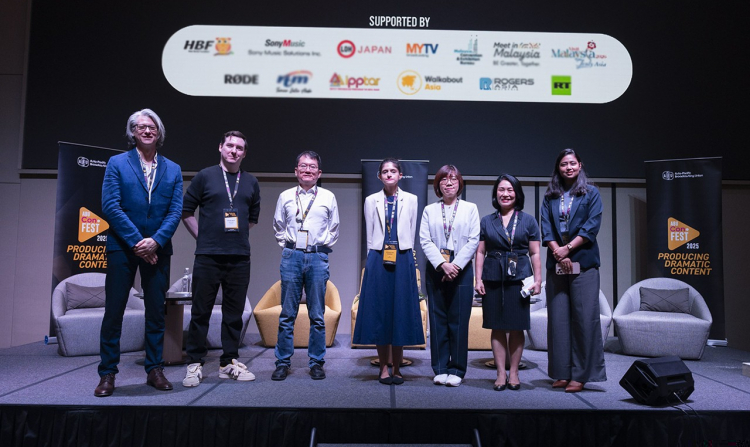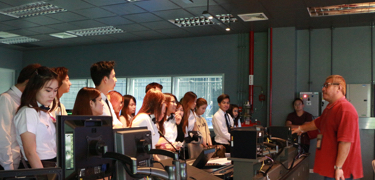Thai PBS participated in the 2025 ABU Con-Fest held on July 8 to 10, 2025, in Kuala Lumpur, Malaysia. The content festival was a regional forum held by the Asia Pacific Broadcasting Union (ABU), bringing together media organizations from ABU member countries in all sectors, including newspapers, radio, Podcasts, Television, and digital media, to exchange and present practical guidelines, innovation, and content for the future of the mass communication industry in the regions.

This year, Ms. Kanokporn Prasitphon, Director of Thai PBS Digital Media, presented Thai PBS's AI innovations that have been applied to enhance accessibility to website content—including news, articles, and video content—to better meet the needs of audiences in the era of AI transformation. These innovations respond to changing content consumption behaviors, such as the demand for diverse media formats and the convenience of personalized, curated content. They also reflect the organization’s ongoing commitment to innovation in adapting to the future of mass communication.
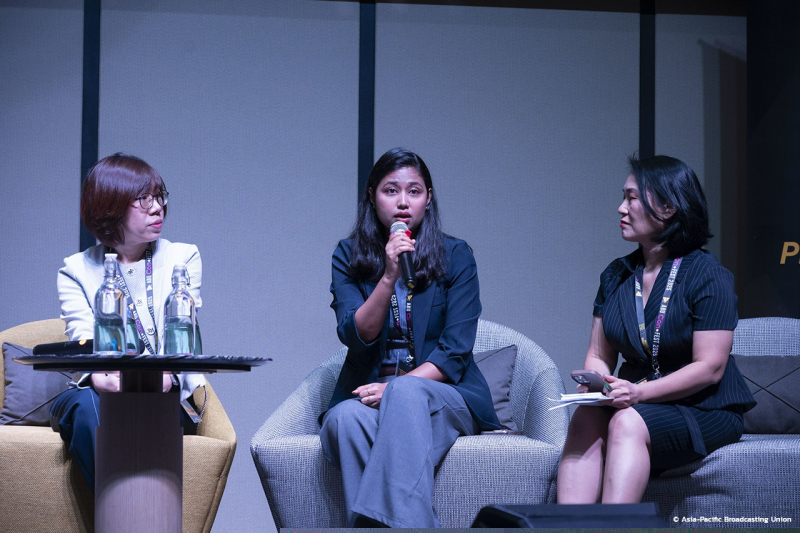
Thai PBS is committed to advancing AI technology to play a greater role in content creation, streamlining production processes, and ensuring more inclusive and equitable access so that “everyone can access public media equally.” The 3 AI capabilities that have been applied to the Thai PBS website have been presented in the AI showcase entitled '3 AI Features for Smarter Websites', including:

1. News out Loud: Transforming every news item into a voice that everyone can access anywhere
Thai PBS has adopted Text-to-Speech (TTS) technology for news content by combining AI-generated voice with the voice of Thai PBS's signature news anchors. This creates a natural and familiar listening experience. The feature also includes user-friendly functions such as adjustable speed, selectable news anchor's voice, and continuous listening mode with an audio playlist categorized by news topics—such as society, politics, environment, and more—available at www.thaipbs.or.th/AIAudioNews. The platform is designed to be inclusive, particularly for the elderly and visually impaired, enhancing equitable access to news and information. Readers and listeners are encouraged to participate in AI’s reading language development by providing feedback and ratings.
2. AI in Brief : Concise and easy-to-understand summaries
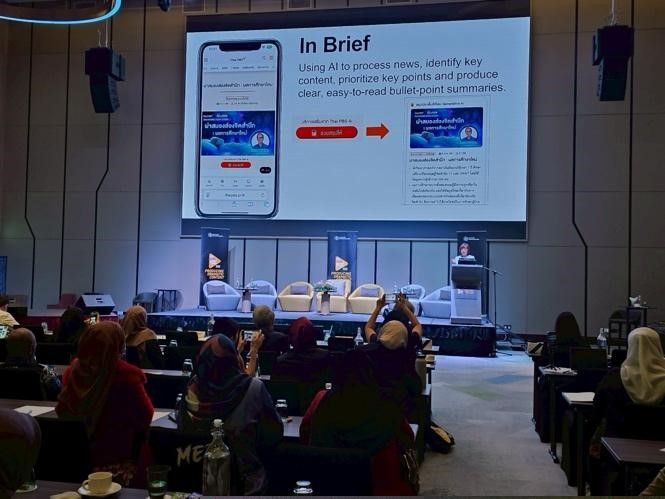

To meet the needs of modern news consumers who seek quick and clear information, Thai PBS offers AI in Brief—a service that utilizes text summarization technology to condense news articles into brief, precise summaries without losing the core message. This allows the audience to quickly grasp the key information and, if desired, switch to the full version for more details. Audiences can access these summaries at www.thaipbs.or.th/Now, and also participate by rating the quality of understanding in the summarized content.
3. Playlist for You : Personalized Content Recommendations
On the VIPA OTT platform, www.VIPA.me, Thai PBS employs Big Data analytics and user behavior analysis to offer Personalized Content. AI technology is used to analyze individual user preferences and recommend programs that align with their tastes and viewing habits.

It offers personalized program recommendations drawn from Thai PBS’s extensive library of news, documentary, and creative content. Accessible via both the website www.VIPA.me and the VIPA mobile application, this feature helps viewers discover programs they may not have encountered before but are likely to align with their interests. In addition to enhancing the user experience, it broadens access to diverse, high-quality public media content. It empowers audiences with greater freedom to choose what they watch in the digital platform era.
In addition to presenting Thai PBS's AI innovations, the three-day conference also featured extensive sharing of experiences among international public media communities. On the first day, the focus was on podcast techniques, from topic selection to digital platforms promotion, with podcast showcases from Malaysian and Australian producers. Day Two shed light on new perspectives on platform trends and content from SONY MUSIC, RRI, Walkabout Asia, and RTM, Disaster Management and disaster information accessibility, with member countries such as Indonesia, Malaysia, and Myanmar presenting their works and practice guidelines.
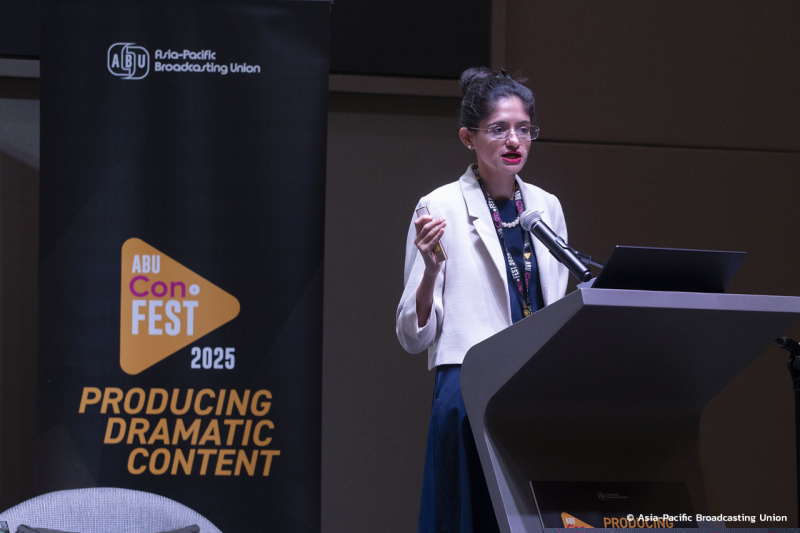
At the conference, a special speaker - Dr. Seemantani Sharma, Legal Manager of Asia-Pacific Broadcasting Union (ABU) discussed the key issues on the topic "Intellectual Property Laws and AI Generated Content" and mainly categorized the content into the following two categories:
- Autonomously Generated Content: AI-generated content produced completely without any human contribution.
- AI-assisted Content: human-facilitaed AI-generated content produced under the prompt or instructions from human and based on concept guidelines from human.
It was emphasized that Artificial Intelligence (AI) can enhance creativity; however, intellectual property laws continue to prioritize human authorship. For creators using AI-generated content, the following recommendations are advised: always credit the AI tools used; if the AI was trained on copyrighted material, obtain permission from the content owner; use results from reliable AI tools; and document the creative process—such as screenshots or records of the creative steps—as supporting evidence.
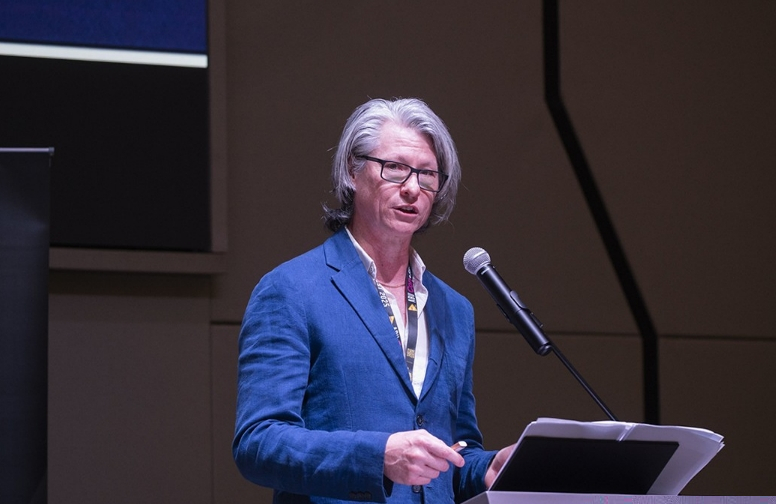
The third day ended with a session on 'Evolution of AI in media' by Craig McCosker, Group Product Manager at ABC, Australia. He discussed the use of AI in media production streamlining, from basic automation to real-time analysis, and interactive audience experiences. These tools could assist media organizations in boosting engagement online, understanding the audience, and social media trends. Followed by experts from Malaysia and Turkey who shared their content creation strategies to meet the needs of audiences on each platform.

Among them is an eye-opening perspective from Shiva Ruppeni, a Media Strategist from Malaysia who currently works with Malaysia's No.1 podcast - Keluar Sekejap and has worked with global platforms such as TikTok and Apple. It is one of the sessions that reinforces the need to adapt the concept of the media industry to keep pace with the modern audience, who are not only informed but also have powerful voices, and are ready to choose only what feels 'right' for them. She emphasized that if media producers continue to stick to the old format that does not serve the needs of a new generation of audiences, they will be left behind.
These sessions altogether reflect the shared goal of the region's public media to bring technology and innovation to help everyone have better access to information and quality content in the digital age. Therefore, the 2025 ABU Con-Fest is not only a platform to showcase innovations in media technology, but it also reflects the important role of regional cooperation in driving the media industry to adapt to the changes in the digital world. It aims to create a media ecosystem that is open, fair, and equally accessible for all.
